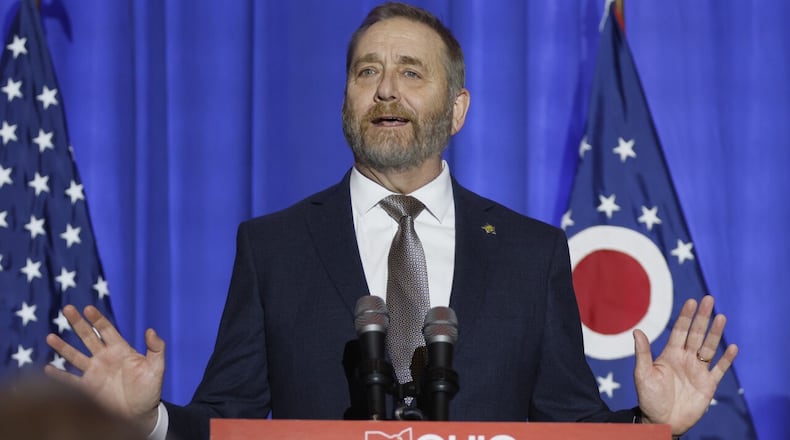“Having carefully examined this submission, I conclude that the title and summary are fair and truthful statements of the proposed constitutional amendment,” said in a response letter sent to the petitioners.
Yost said now the Ohio Ballot Board must determine whether the proposal contains a single constitutional amendment or multiple constitutional amendments. If the board certifies the proposal, the petitioners must collect signatures from registered voters equal to at least 10% of the vote cast in the most recent gubernatorial election.
Those signatures must come from voters in at least 44 of Ohio’s 88 counties, and for each of those counties the number must equal at least 5% of the vote cast in the most recent gubernatorial election.
Beth Blackmarr, the spokesperson for Citizens for Property Tax Reform, told this news outlet now the real work begins.
“I’m very excited, I’m very happy, this is going to be a Goliath of a job, it’s going to be huge trying to get all these signatures, trying to get a system down,” she said. “The one thing about this organization there’s no rich benefactors, it’s all just people doing this and also while we’re doing this we’re trying to help people stay in their homes.”
She said they gathered roughly 1,800 signatures — 1,000 are required by law — to get the petition on Yost’s desk and she believes they’ll need at least 500,000 names — accounting for potential flawed signatures — to put it on the ballot.
The constitutional amendment would “abolish taxes on real property” but for purposes of the ballot question doesn’t suggest another way to fund schools and other local services like fire and police. Blackmarr told this media outlet previously “it’s going to be either sales tax or income tax or some combination thereof” to replace the current revenue source.
She said it didn’t have to come to this, if state lawmakers had listened to their constituents and passed meaningful reform. She noted state legislators shouldn’t take this effort lightly.
“This should have been a no-brainer for the legislature, did they do it, no. We seniors have some time on our hands to devote to this kind of thing. The seniors are the last ones you want to mess with, we’ve got time and we vote. So pick your battles legislature,” she said adding other jurisdictions like New Jersey and Texas have implemented relief. “We can do it but it’s up to them. If they pass something meaningful, and I don’t mean breadcrumbs, I think people will be less likely to vote it in if we get it to the ballot. So it is an action of last resort.”
Yost’s office noted “if sufficient signatures are verified by the Ohio Secretary of State’s Office at least 65 days before the election, the full text of the proposed amendment will be placed on the ballot.”
In his letter the attorney general made it clear he isn’t endorsing the proposal with this approval.
“My certification of the title and summary under Section 3519.01(A) should not be construed as an affirmation of the enforceability and constitutionality of the referendum petition,” he wrote. “My role, as executed here, is limited to determining whether the wording of the title and summary properly advises potential petition signers of a measure’s material components.”
This would erase a huge chunk of revenue. According to state budget documents, property tax collections for 2023 totaled $22.6 billion. State and local income taxes last year totaled $13.8 billion and sales tax $18 billion.
Sen. Bill Blessing, Republican from Colerain Twp. and chair of the Ways and Mean Committee said previously eliminating property taxes is a “terrible proposal” and if the measure actually makes it to the ballot he predicts it will “go down in flames.”
“Make no mistake, every township trustee, irrespective of party would come out in opposition to this, fiercely so, so would every school district, so would all of the labor organizations, so would the cities, so would the counties,” Blessing said. “Anybody involved with local government would come out guns blazing on something like this. In the end I think both political parties would wind up opposing this.”
About the Author
